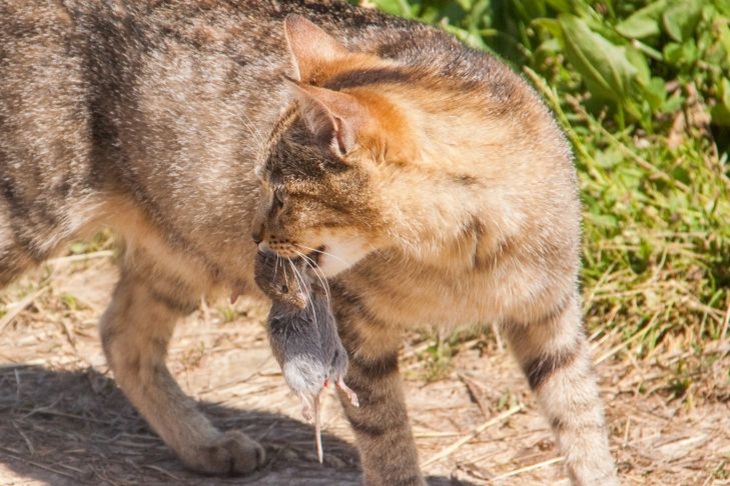You'll Never Guess Why Cats Bring Dead Animals: The Answer Will Surprise You
Get ready to learn the truth that will change your perception of your pet.
Cats aren't just predators. Their behavior is rooted in ancient instincts that turn your living room into a survival training ground.
Master class for a person
Research by zoopsychologists from the University of Edinburgh has proven that cats consider people to be inept hunters.
By bringing you their prey, they try to teach you the basics of hunting, just like they would with kittens.
In the wild, mothers will sacrifice a half-dead victim so that their young can practice killing. If your cat is spayed and has no offspring, her instincts are redirected toward you.

This is not a kind gesture - it is a criticism of your skills. The pet demonstrates that without its help you will die of hunger.
Why dead animals?
The answer lies in hierarchy. When a cat leaves a carcass on the doorstep, she is marking her territory by mixing her scent with yours. This is how she claims the "pack" and the home.
An experiment by the Australian Museum showed that in families with several cats, "gifts" appear more often.
This is a way to remind your fellows who is in charge here. And the choice of location is not random - the door, bed or shoes are saturated with your scent, which amplifies the signal.
An alarming fact
This behavior can be a symptom of stress. Domestic cats, deprived of the opportunity to hunt, compensate for this by "playing" with toys or insects.
But if the catch is real, it's a sign of unfulfilled instincts. A study in Animals magazine confirmed that cats with access to the outdoors bring back trophies three times more often.
They are not "evil" - their brains require activity that laser pointers and balls do not provide.
What do vets say?
Regular hunting is a marker of health. If a cat suddenly stops bringing in prey, this may indicate dental disease, joint disease, or loss of smell.
But there is a downside: compulsive killing of small animals has been linked to hyperthyroidism and anxiety disorders.
Scientists at Cornell University have found that 20% of such cats have elevated cortisol levels. Their "gifts" are a cry for help disguised as cruelty.
How to wean your pet off this terrible habit?
Shouting and punishment will only make the problem worse. Cats don't understand why they are being scolded - to them, it's praiseworthy behavior.
It is more effective to offer an alternative: interactive feeders where food is obtained through puzzles, or games with fishing rods-feathers.
If your cat is walking outside, put a bell on its collar: this will reduce its hunting success by 40%, as proven in Oxford.
